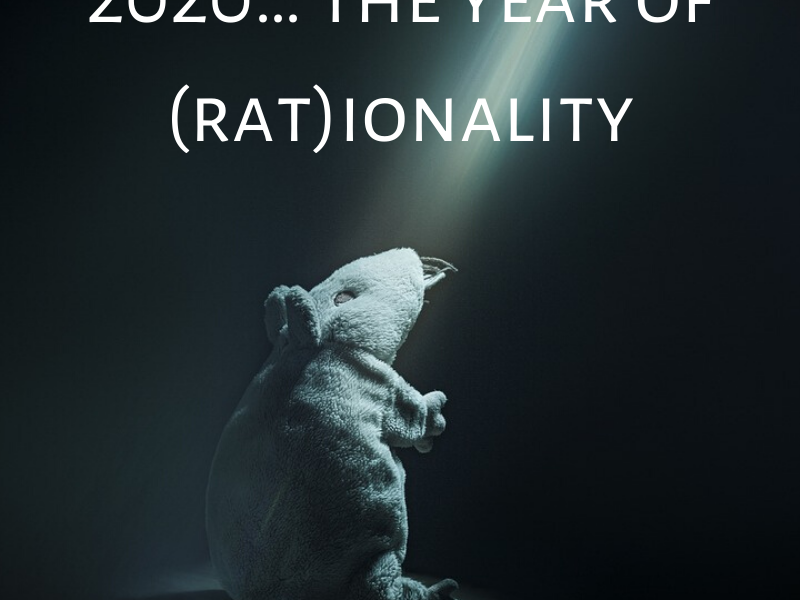Quite often I find myself staring at the numbers 2020. It’s the start of a new decade, and the nice round even numbers are arithmetically pleasing to my eyes. This set of numbers gives off symmetrical balance. However, I’m also disillusioned with the image of the zeros being an oval (emphasis on oval) wheel guiding the rat race. We’re seven days into this new decade with turmoil shifting our vision, as we focus on pivotal worldly matters.
For a brief moment, I’m going to realign my focus back towards my advocacy, eczema.
As someone who looks for meaning, I couldn’t help but notice that according to the Chinese Zodiac, it’s the Year of the Rat. I’ve always felt like a lab rat dealing with decades of eczema treatments and new therapies. So I find this a bit paradoxical, however, it has me questioning the true meaning of rationality. Especially when it comes to eczema.
To grasp a better understanding of the word rationality, I looked it up. I was met with a few different examples. The two that I want to focus on are bounded rationality and epistemic rationality.
Let’s start with bounded rationality.
It’s 2020, and eczema is at the forefront of skin diseases and in big leagues now. It’s established as a global issue. Multiple articles are published each day that detail eczema treatments and solutions. Yet, there tends to be a disconnect. Uncertainty rears its ugly head, and patients make rash decisions based on the information fed to us.
As eczema patients, are we asking enough questions? Or are we settling on specific methods due to an informational gap? Don’t get me wrong, there’s plenty of information. But is it all valuable? Doing the best you can, with the given sources available is an example of bounded rationality.
After being diagnosed with “baby eczema” at the age of two, my doctor said, “not to worry, I would grow out of it in adulthood.” Decades later, I still held onto this theory that one day I would outgrow it. Unfortunately, I had to override and abolish this information altogether. This was a miscalculation of just how powerful eczema was and still is.
Letting go of this theory made me practice epistemic rationality. I had to understand my skin, research, and rewire my brain to grasp the concept that eczema was never going to “officially” go way voluntarily. To this day, I find myself holding onto debunked information. It’s made me realize, it might be time to rethink and realign my comprehension of eczema.
Exploring rationality in both forms makes my intentions deeper by looking outward. I read about patients suffering from different conditions, ailments, and diseases and their coping methods.
One particular patient with a chronic disease was fed up and swore off the treatment by refusing to work with our healthcare system. They were in dire need and searched for alternatives. This alternative happened to be in the form of an ex-pat program. This is where you’re allowed to buy into other countries’ national healthcare programs. To due so, you must have the financial capacity or invest in property or local businesses. I may be oversimplifying this, as I’d never heard of such a thing. But this was eye-opening. It taught me that if patients do not feel valued, they will go to crucial depths to gain it back. Once they feel valued, they garnered interest and enlighten other patients in the form of an alternative solution. To me, this was a great example of optimal rationality.
Leaping back into the rat race and onto the oval wheel, I’m very hopeful for the prospects for eczema in 2020 and beyond. I dedicate this year to rationality.
